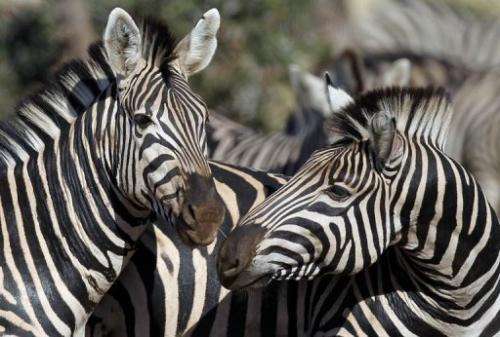England to ban circuses from using wild animals

Travelling circuses in England will be banned from using wild animals from December 2015, the government announced on Tuesday, after a long campaign to end the practice.
Introducing a draft bill in parliament, junior environment minister Robert Ponsonby said circus operators had until then to adapt their shows and find new homes for their animals.
"This legislation will end the use of wild animals in travelling circuses in this country. It will also help ensure that our international reputation as a leading protector of animals continues into a new global era," he said.
Lawmakers voted two years ago to end the use of wild animals in circuses and animal rights groups have been pressing for a change, but ministers initially feared a legal challenge from operators.
"There is no place in today's society for wild animals to be used for our entertainment and we are absolutely delighted," said Peter Jones, president of the British Veterinary Association.
Prime Minister David Cameron's government has already introduced tough new regulations to safeguard animal welfare, and two circuses are currently licensed to use about 20 wild animals between them.
But Jones said such an arrangement was insufficient, saying the animals' needs "cannot be met within the environment of a travelling circus".
Of the two licensed circuses, the Circus Mondao's acts include camels, llamas and zebras, while Peter Jolly's Circus showed photographs of llamas in its online gallery.
They also use horses, which will be allowed under the proposed law.
A spokesman for their industry body, the Classical Circus Association, said a ban was unnecessary.
Chris Barltrop said circus operators had welcomed the new regulatory arrangements, which includes unannounced inspections, saying licences were proof "that we are doing it right".
"A ban is unnecessary, because we've proved to the satisfaction of people who are looking at it in a detached and scientific way that it is ok" to have animals in circuses, he told AFP.
He said the inspectors assessed the animals' physical conditions as well as their psychological needs, adding: "We're on a par with other captive environments—we've proved that."
Ponsonby admitted that for decades wild animals had been an integral part of the British circus industry, offering the public probably their only glimpse of exotic animals.
But he said that zoos and wildlife documentaries had given people a greater appreciation of the animals, and shifting public opinion meant that the "overwhelming majority" now believed wild animals should not be part of the circus experience.
(c) 2013 AFP



















